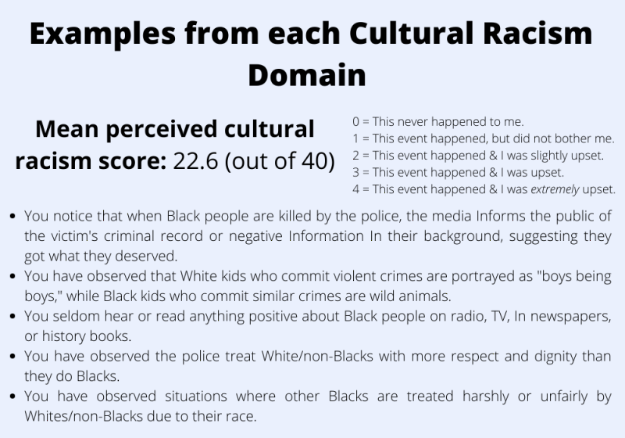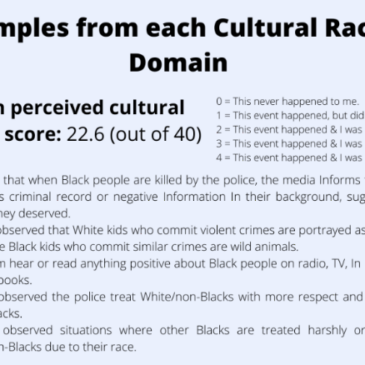African American men experience disproportionate legal repercussions for non-violent drug offenses and negative stereotypes framing them as dangerous or violent. African American men may use cannabis to deal with stress from racial discrimination, contributing to a vicious cycle of legal consequences and racist stereotyping. This week, STASH reviews a study by Jardin Dogan and colleagues that examined the association between race-related stress and cannabis use among incarcerated African American men.
What was the research question?
What is the association between race-related stress and cannabis use among incarcerated African American men?
What did the researchers do?
This study used data from the Helping Incarcerated Men study, with a sample of 177 incarcerated African American men who were close to release. The researchers chose to focus on perceived cultural racism— which they defined as “an ideology that White values, language, and customs are superior and a practice that omits or diminishes the cultural integrity of African Americans”— rather than individual or institutional racism (see Figure).1 The researchers used bivariate analyses to analyze the correlation between perceived cultural racism and years of regular cannabis use,2 controlling for age, incarceration prior to age 18, and length of lifetime incarceration after age 18.
What did they find?
Incarcerated Black men who perceived more cultural racism in their lives reported more years of regular cannabis use prior to incarceration. After the researchers controlled for age, incarceration prior to age 18, and length of lifetime incarceration after age 18, more perceived cultural racism predicted more years of regular cannabis use prior to incarceration.

Figure. Examples of questions from each of the five Cultural Racism domains on the Index of Race-Related Stress Brief Version with a mean perceived cultural racism score of 22.6 out of 40. Click image to enlarge.
Why do these findings matter?
This study suggests that African American men with criminal justice involvement use cannabis to cope with perceived cultural racism. As long as racist ideologies persist and hurt people of color, we will need culturally-specific substance use treatments to try to unwind their harmful effects on health. Moreover, continued cannabis after incarceration could jeopardize users’ freedoms and employment prospects. Treatment for African American men should teach and encourage healthy coping methods for race-related stress and emphasize the importance of a supportive social network. Both elements can promote positive beliefs and self-empowerment about their African American identity.
Every study has limitations. What are the limitations of this study?
While this study was able to provide preliminary data on the association between race-related stress and cannabis use, it was a cross-sectional study and therefore did not follow people over time. Additionally, the sample only came from Kentucky, and it is unclear whether these findings can be generalized to people from other parts of the U.S. and beyond.
For more information:
The Black Mental Health Alliance provides resources including a referral database to culturally- competent mental health care. If you are worried that you or someone you know is experiencing addiction, the SAMHSA National Helpline is a free treatment and information service available 24/7. For more details about addiction, visit our Addiction Resources page.
— Taylor Lee
What do you think? Please use the comment link below to provide feedback on this article.
________________
[1] They define individual racism as “conscious and unconscious attitudes and behaviors that prevent African Americans from obtaining resources and experiences,” and institutional racism as “policies and practices that advantage White people and limit the upward mobility of African Americans.”
[2] Defined as 3 or more times per week.




